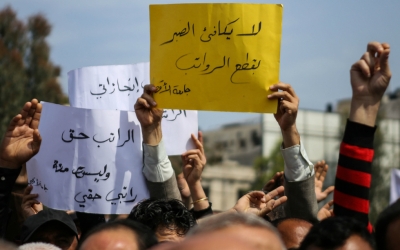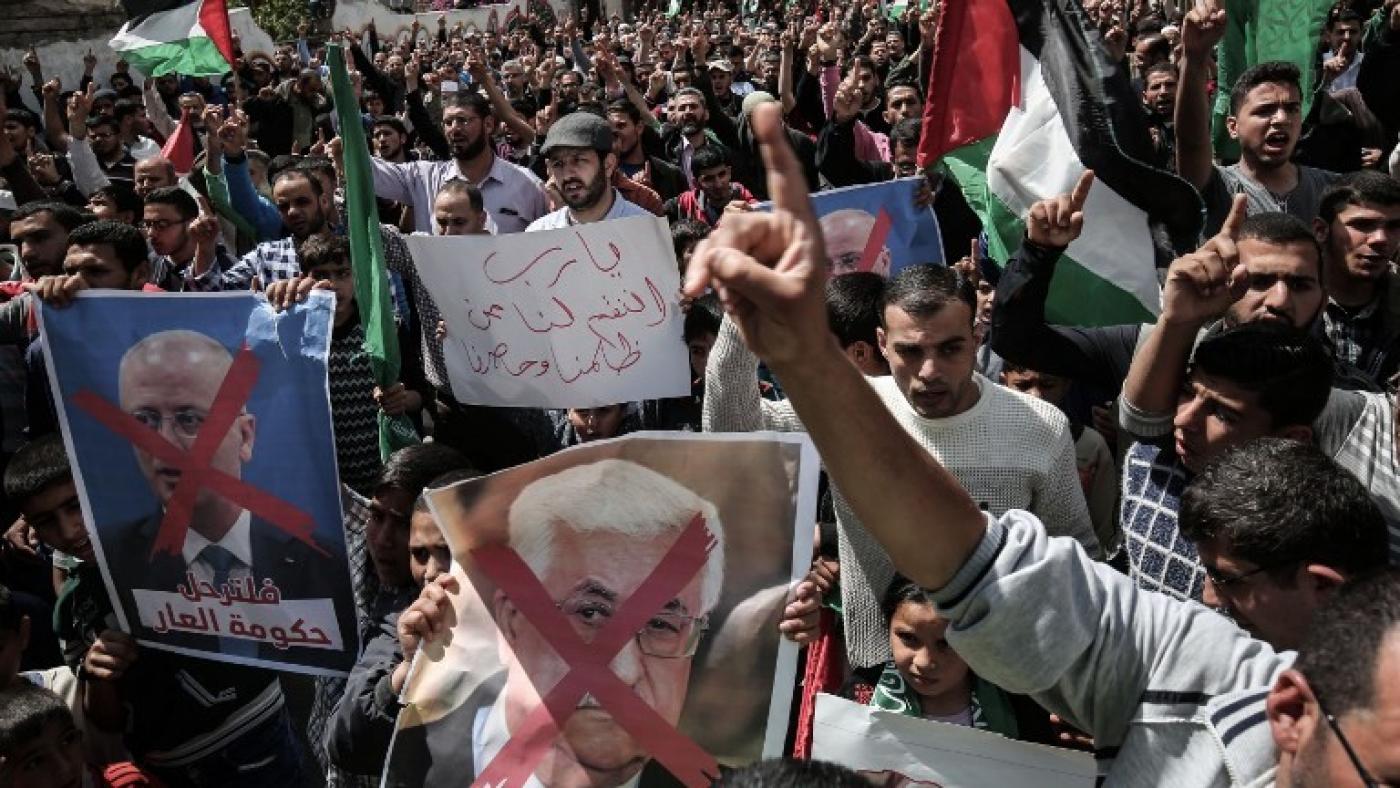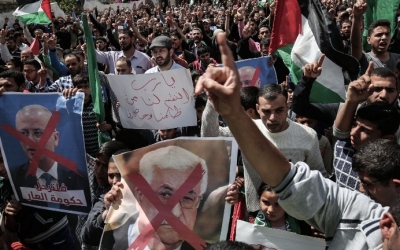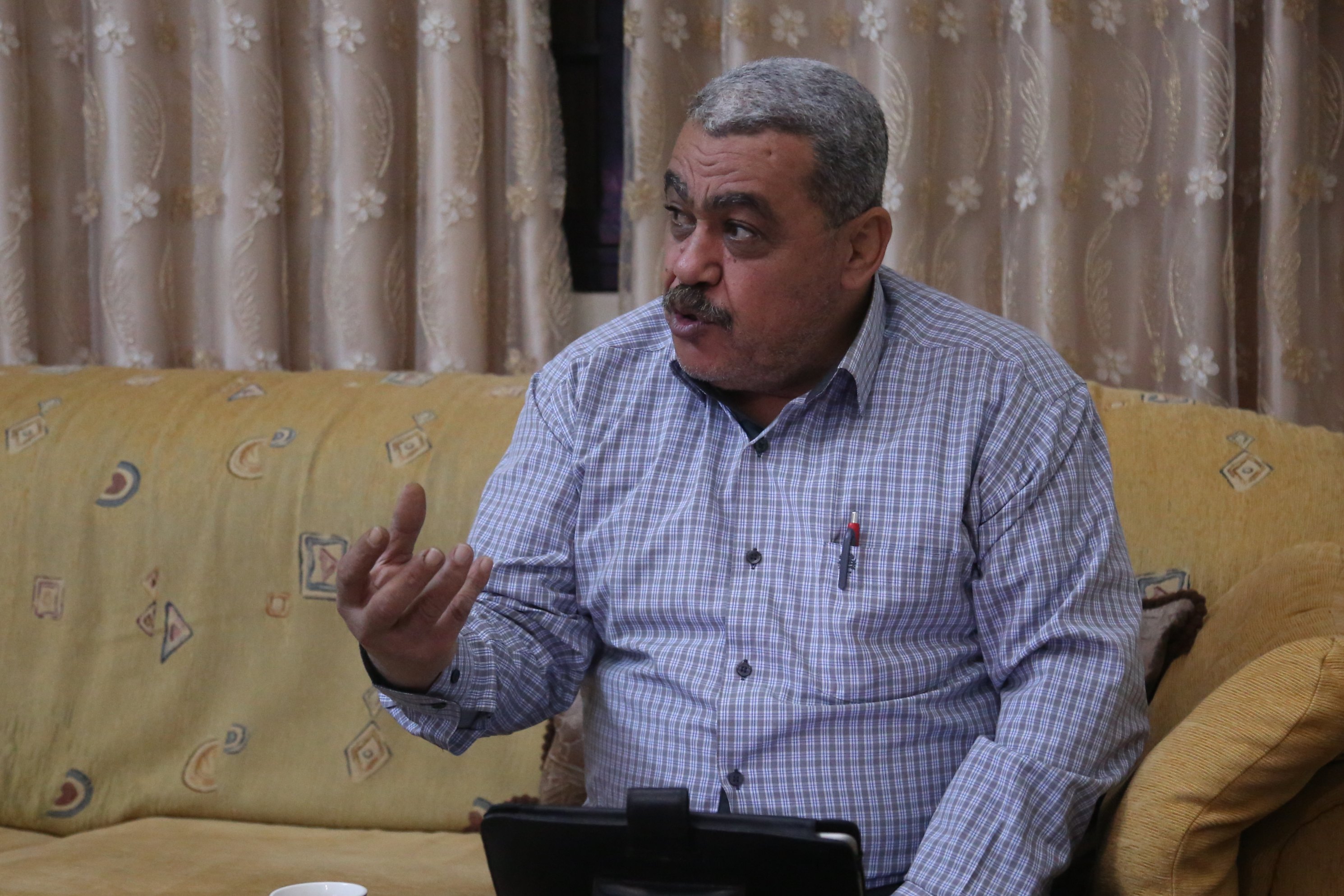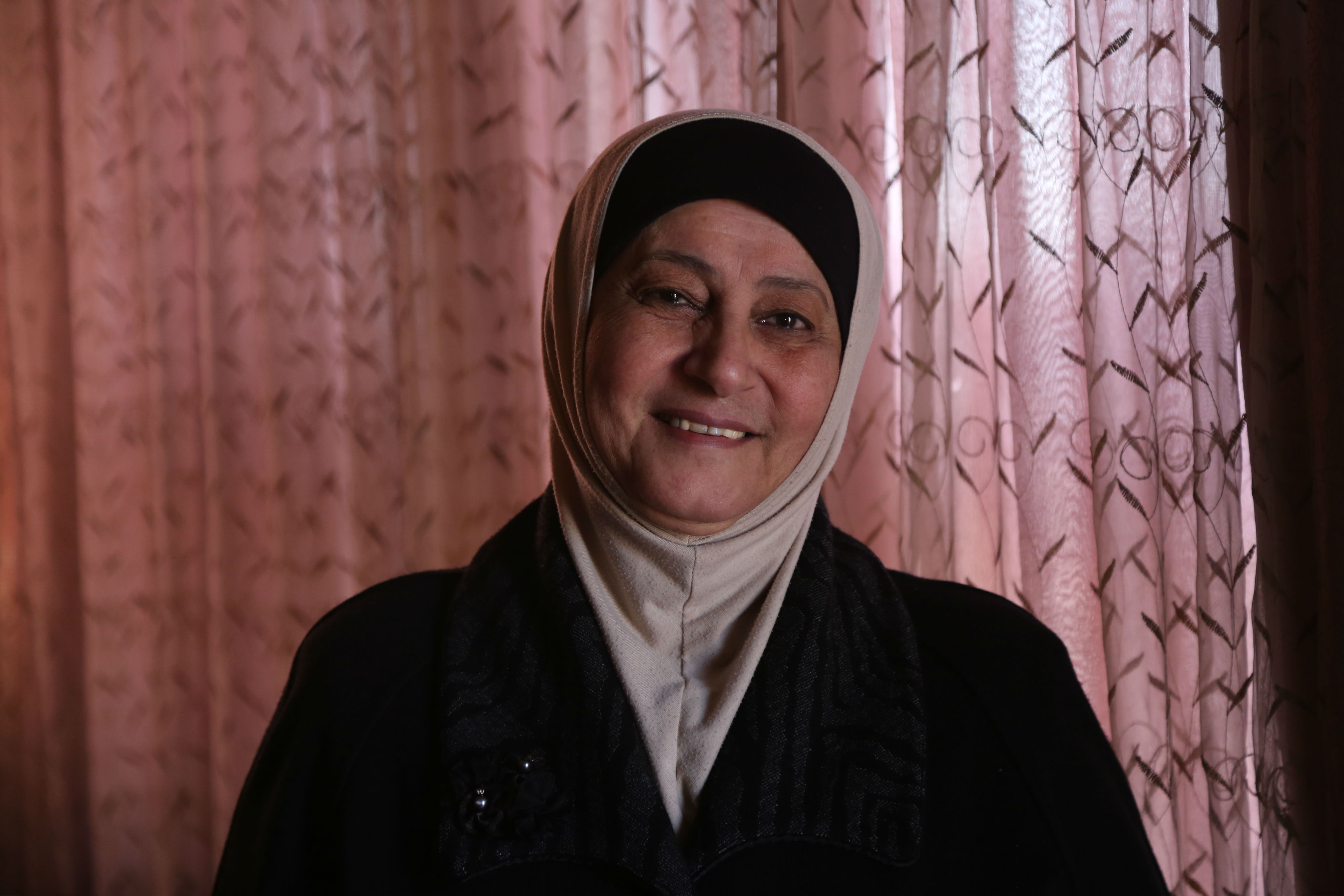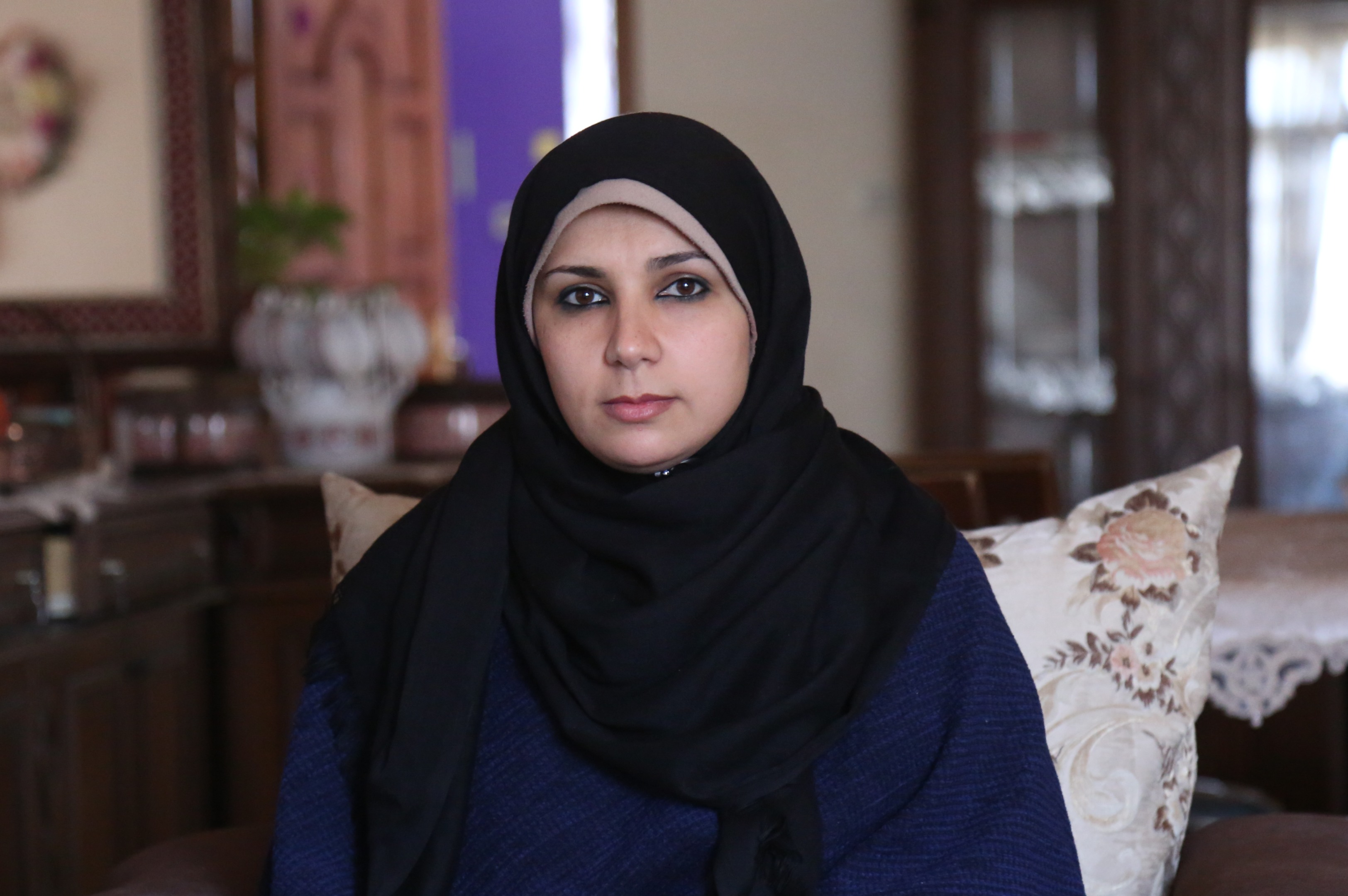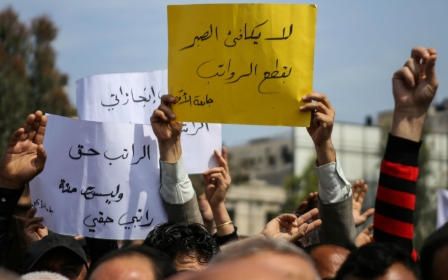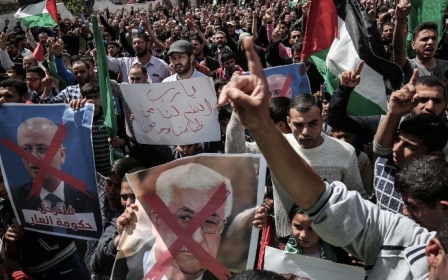Gaza's breadwinners defiant in the face of Palestinian Authority salary cuts
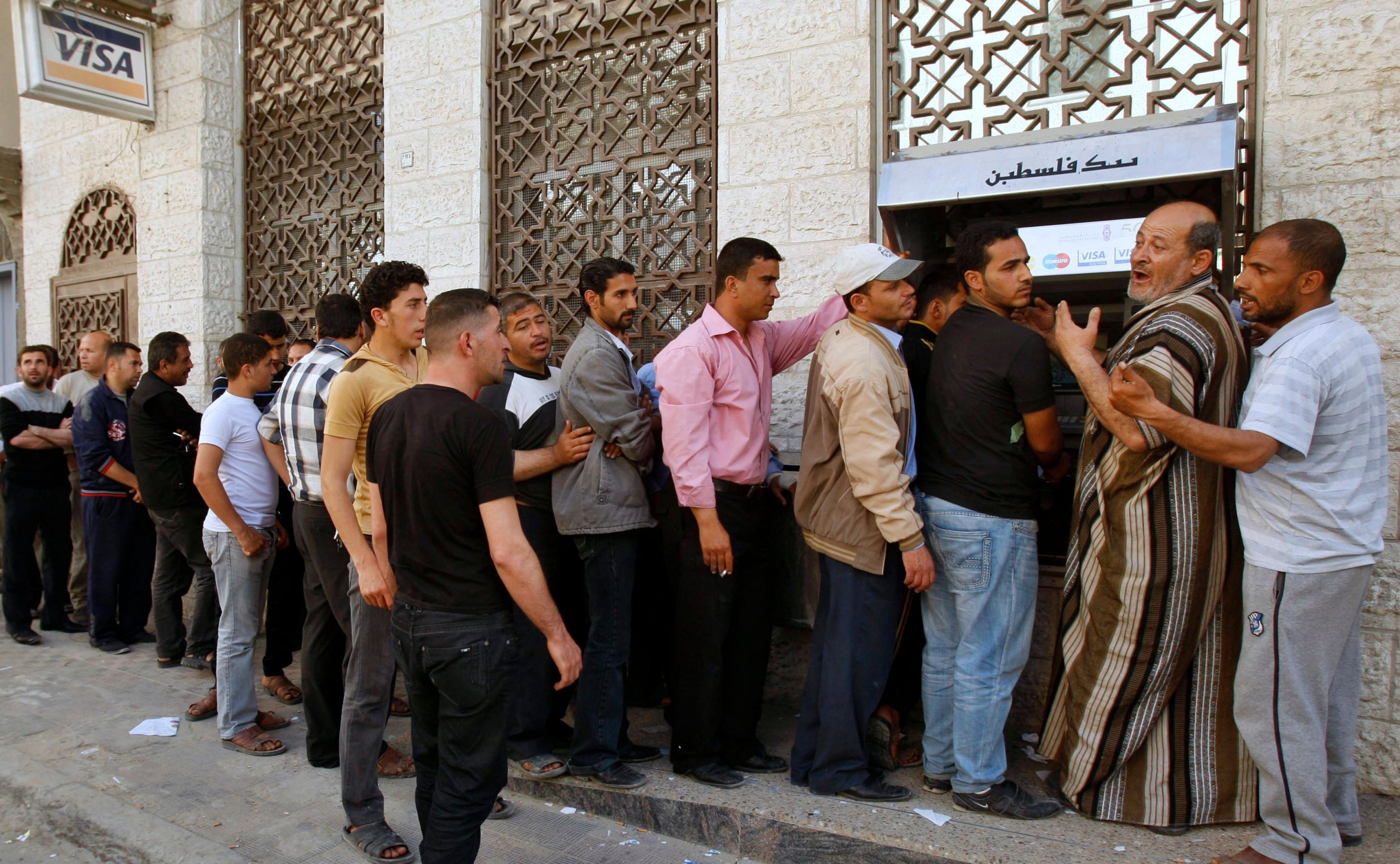
Earlier this month, the Palestinian Authority (PA) reduced the salaries of 263 employees from the Gaza Strip's Ministry of Health, as well as a further 400 employees from the Education Ministry - all in besieged Gaza.
Spokespersons for both ministries announced the numbers in separate statements on 11 February, stressing that the salary cuts of public employees - with doctors and teachers making up a majority of those affected - was a "flagrant violation" of their rights.
The ministries warned that the employees' reduced salaries would negatively impact their capacity to provide services, further compounding the fact that the ministries have not received administrative and operational funds from the PA for years.
The cuts appear to be the latest case in which civil servants in the strip have been caught in the political crossfire between the PA and Hamas.
That rivalry and the fallout from it was the main talking point in markets, hairdressing salons, coffee shops and in public taxis in Gaza, affecting hundreds of employees providing vital services.
This month's salary cuts left some workers with empty bank accounts, while others received only 30 percent of their usual salary. In response, the enclave's teachers union announced it was carrying out a series of strikes - including ones on Wednesday and Thursday.
"I went to withdraw my salary for February, but the teller told me I have nothing in my account," a PA employee who was sitting on the bench near a cash machine on al-Remal Street in Gaza City told Middle East Eye, adding that he was told he would have to contact a PA civil servants agency based in the West Bank to find out why he was not on the payroll.
"This is my only source of income. I have loans and debts, I pay a monthly rent, I have two sons going to universities," he said. He is shocked and worried by what is happening.
Several civil servants caught in the latest and earlier cuts by the PA told Middle East Eye they were angry and disappointed with the governing body. They talked about how these salary cuts have affected their lives in the blockaded coastal enclave, in which more than half the population lives in poverty.
Fatah-Hamas feud
Critics say the latest salary cuts are part of a deliberate and longstanding tactic by the Fatah-led PA to pressure its rival Hamas, amid a bitter, decade-long political dispute.
Following Hamas's victory in 2006 legislative elections, Fatah and Hamas confronted each other in an armed conflict in which the PA was effectively booted out of power in the Gaza Strip.
Since then, the PA and Hamas have failed to resolve their acrimonious power struggle, with numerous attempts at forming a unity government falling flat, effectively leaving Gaza under the control of a Hamas-led administration separate from the PA operating in the occupied West Bank.
Palestinians in Gaza have felt the consequences of the internal Palestinian political conflict, all the while suffering since 2007 from an Israeli-imposed siege.
Following Hamas's rise to power in Gaza, the PA requested that its 70,000 civil servants in the Strip - many of whom were members of the Palestinian security forces - cease working under Hamas, but continued to pay them.
The PA currently employs around 50,000 people in Gaza who still receive a salary despite not having worked since 2007 - a move it says is carried out to ensure their loyalty and inject much-needed money into Gaza's stricken economy.
Today, only a few thousand are estimated to still be actually working, mainly in the critical health and education sectors - the very workers who were targeted by the PA in this month's cuts.
Since the conflict between the two factions began, Hamas has meanwhile set up its own parallel administration with about 50,000 staff, whose salaries the PA refuses to pay.
Financial crisis or punitive measure?
Since April 2017, the PA has slashed civil servants' salaries, cut electricity to residents, and limited medical services and funds in Gaza - moves widely perceived in Gaza as punitive measures to apply pressure on Hamas.
Without warning, the PA cut salaries by 30 percent In April 2017, then in March last year cut them by a further 50 percent.
The cuts mean employees now only receive 35 percent of what they were being paid at the beginning of 2017.
PA spokesman Yousef al-Mahmoud told MEE that the international financial aid the PA receives had decreased by 70 percent in recent years and that it could no longer afford to pay full salaries to employees anymore.
"The cuts are due to the financial crisis the Palestinian Authority is going through," Mahmoud said.
However, this explanation was rejected by several political figures in Gaza.
Walid al-Awwad, a leader of the Palestinian People's Party, told MEE: "If salary cuts were made due to the financial crisis, why are they only implemented against PA employees in the Gaza Strip and not in the West Bank?"
Popular Front for the Liberation of Palestine (PFLP) leader Maher Mezher concurred: "We call on the Palestinian Authority to stop harming citizens and to stop creating more pressure. The PA has to start focusing on solving their conflicts with Hamas without humiliating people."
The doctor: 'My salary is my right'
Dr Bakr Abu Safeyeh, a 58-year-old surgeon, was the director of an emergency department until 2007. After Hamas took control of Gaza, he was replaced with another doctor and not allowed to return to his position.
The surgeon, who was a member of the PFLP's central committee, was employed by the health ministry from 1994 until 6 February 2019.
But when Abu Safeyeh went to withdraw his salary earlier this month, he was surprised to find that the payment had not been deposited.
"Everyone knows I'm against Mahmoud Abbas, I'm against his actions and his Authority," said Abu Safeyeh, stating he believed critical comments he made against the PA and its president led to his salary being cut.
"I was not sad because they slashed my salary," the doctor said, pointing out that he had a second job as a surgeon in a private hospital. "But I feel worried for the people who don't have any other source of income."
Abu Safeyeh said that Abbas will continue to increase punitive measures against the Gaza Strip until Gaza and the West Bank are completely separated because, he believes, Abbas aims to give up his responsibility for the small Palestinian territory.
"My salary is my right, sooner or later I'll have my salary back," he added. "My salary will stay forever, but President Abbas will no longer exist one day."
The school supervisor: 'Citizens are affected, not Hamas'
Rami Fares, 39, has been working in the Palestinian Authority Ministry of Higher Education as an educational supervisor since 2002.
On 4 February, Fares found out his salary had been cut when it failed to materialise in his bank account.
"I'm affiliated to Fatah, I support Fatah," he told MEE. "The PA miscalculated the fact that they will pressure Hamas when they cut salaries, because citizens are the ones affected, not Hamas!"
Fares said that he would fight for his right to have his salary through human rights organisations in Gaza, saying the PA's actions breached the contract he signed when he was hired back in 2002.
The airline employee: 'I have been borrowing from relatives'
Khawla Abu Kmail, 64, says she lost her salary on 1 January 2018 without being given a reason.
Abu Kmail was recruited for the ticketing and reservations department of Palestinian Airlines after her husband died almost 15 years ago. The small national company only operates a few flights out of Egypt since Gaza's airport was destroyed by Israeli forces in 2005.
Despite the fact that she is over 60, the PA did not provide her with a pension after cutting her salary.
A mother of three, Abu Kmail was responsible for her children after her husband died and her salary was her only source of income.
"I am not affiliated to any political party," she told MEE. "I am an old woman, I can't work, I have been borrowing money from my relatives."
Abu Kmail was not the only employee at Palestinian Airlines who lost her salary - another 30 employees have been slashed from the payroll.
"My colleagues and I are waiting for the committee the PA is creating to look into our case," she said.
Abu Kmail said that an official in the Ministry of Transportation and Communication promised Palestinian Airlines employees that the ministry would create a committee to evaluate their situation.
The airline employee said the only response they have received so far from the ministry is: "God willing soon, don't worry we will keep you in mind."
The secretary: 'I won't give up on my family to regain my salary'
Shaimaa al-Helou is a 36-year-old mother of three boys and a girl who has been employed by the PA as a secretary since 2003.
Helou says her salary was cut in June 2008 because her husband's cousins are affiliated with Hamas, despite the fact that she herself is not affiliated with any political party.
"I am still listed in the [Palestinian Authority] public servants bureau website as a Palestinian employee," she told MEE. "How come they have my name there when they haven't paid me my salary for more than ten years?"
Helou said she has tried to contact all associations that are responsible for the bureau, but to no avail.
She added that some people had advised her to get a divorce, since the main reason for the loss of her salary is her husband's family, but she refused.
"I won't give up on my husband and kids to regain my salary," she said. "They are my treasure."
Middle East Eye delivers independent and unrivalled coverage and analysis of the Middle East, North Africa and beyond. To learn more about republishing this content and the associated fees, please fill out this form. More about MEE can be found here.


